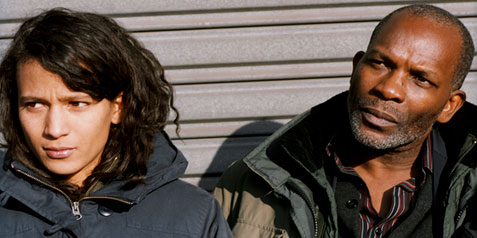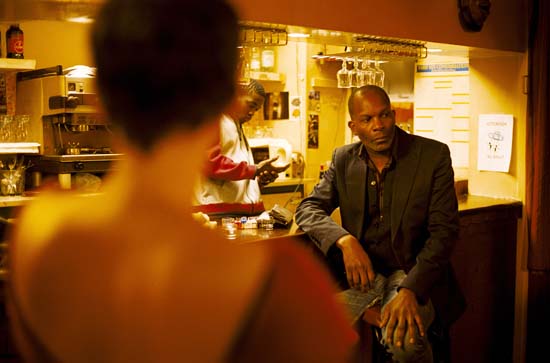There was a time when it was a big deal – seeing black actors on screen. In a way, it still is a big deal, even though black people are now rife in films. Yet the joy of seeing ‘one of your own’ is often dampened by the fact that being the ‘black character’ seems to be all they are about: other actors are painfully aware of their presence and they become tiresomely noble and holier-than-thou figures which alienates them from the audiences – black and white. Often they are merely caricatures, which is all well and good for the likes of Morgan Freeman or Will Smith, but not for those actors who want to be more than the token value of blackness that they bring.
“I could sense that he was not from France. Being a foreigner, it was as if his only family was his daughter. I realised from a very young age that my mother was the only one who counted.”
So says Claire Denis of her widowed Brazilian grandfather and inspiration for her latest film 35 Shots of Rum. Although Denis’ focus on predominantly black characters might provide some context for such an insular relationship, the film strives to be much more than just a film about being black and Parisian.
Denis’s past films have featured Legionnaires sweating their way around North East Africa in Beau Travail, a recounting of jealousy and intrigue in the Foreign Legion, and Vincent Gallo and Beatrice Dalle gnawing their way through unsuspecting admirers in the shockingly bloodthirsty Trouble Every Day.
35 Shots, stars the enigmatic Alex Descas, a regular in Denis’s films, as the widowed father ‘Lionel’ whose father and daughter idyll is besieged by the desires of others and the inevitable burgeoning of his daughter Josephine’s womanhood and independence. The film is also an understated yet passionate exploration of some of the various faces of love. We see unrequited love in the annoying, nosy forty something neighbour Gabrielle’s relentless infatuation with Lionel, while another neighbour, Noe’, played by the rakishly handsome Gregoire Colin, patiently pursues Josephine. There is also the love and contentment to be found in working – Denis portrays the character of Lionel wending his way through Paris at the head of his train in an almost stately way, evoking an addiction to freedom and speed (the loss of which proves too much for one of Lionel’s recently retired colleagues, with tragic consequences).

The only time that Denis’ vision seems to falter is when the focus shifts towards cultural identity. Bearing in mind that, despite having spent her youth in West Africa, Denis is a white female director, this can only be her interpretation of a black, Parisian working class family. The scenes exploring emancipation, African restaurants and gift giving are soaked in sentimentality, and seem to be very much from an outsider’s point of view. Such scenes are alienating and out of step with the rest of the film, detracting from an otherwise intimate portrait of the characters.
This is a shame because, against the universality of the emotions and relationships portrayed here, race should be irrelevant. That said, it’s always refreshing to see a predominantly black cast on the big screen without the usual cliches of violence, drugs or police sirens in the vicinity. Denis does, however, play with the audience’s knowledge of some of her past films and customary portrayals of black people in film. She often creates a sense of impending sinister darkness that develops into something simple and heart-warming – as with the man who appears to be suspiciously prowling through CDs in the Virgin store during Josephine’s late night shift, but turns out to be a rather sweet and bashful admirer rather than a crazed, thieving rapist. Even the father-daughter relationship has moments when you expect the balance in their familial love to tip to the wrong side. But, unlike Jack Slavin’s 2005 film The Ballard of Jack and Rose, with Daniel Day Lewis as a single father to a daughter who is murderously obsessed with him, 35 Shots of Rum portrays the intensely delicate relationship that exists between fathers and daughters in an honest and, dare I say, normal way.
The appearance of Ingrid Caven (an ex-wife and muse of Fassbender) as Josephine’s aunt, whose performance bought to mind an aged Marlene Dietrich, gives us an insight into the absent mother figure while also providing a refreshing break from the intensity of the Parisian circle and an interesting expression of mixed race relationships.
35 Shots of Rum may offer little in terms of twists or surprises, but if you’re in search of a beautifully crafted and photographed film offering a surprisingly insightful and touching glimpse into the nature of familial love and life you could do much worse than watch this.


